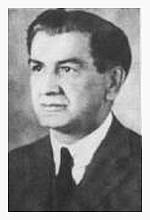.mw-parser-output .hidden-begin{box-sizing:border-box;width:100%;padding:5px;border:none;font-size:95%}.mw-parser-output .hidden-title{font-weight:bold;line-height:1.6;text-align:left}.mw-parser-output .hidden-content{text-align:left}@media all and (max-width:500px){.mw-parser-output .hidden-begin{width:auto!important;clear:none!important;float:none!important))You can help expand this article with text translated from the corresponding article in Portuguese. Click [show] for important translation instructions.
Machine translation, like DeepL or Google Translate, is a useful starting point for translations, but translators must revise errors as necessary and confirm that the translation is accurate, rather than simply copy-pasting machine-translated text into the English Wikipedia.
Consider adding a topic to this template: there are already 1,519 articles in the main category, and specifying|topic= will aid in categorization.
Do not translate text that appears unreliable or low-quality. If possible, verify the text with references provided in the foreign-language article.
You must provide copyright attribution in the edit summary accompanying your translation by providing an interlanguage link to the source of your translation. A model attribution edit summary is Content in this edit is translated from the existing Portuguese Wikipedia article at [[:pt:Zequinha de Abreu]]; see its history for attribution.
You should also add the template ((Translated|pt|Zequinha de Abreu)) to the talk page.
For more guidance, see Wikipedia:Translation.

José Gomes de Abreu, better known as Zequinha de Abreu (September 19, 1880 – January 22, 1935), was a Brazilian musician and composer.
Abreu was born in Santa Rita do Passa Quatro, São Paulo state. He is best known for the famous choro tune "Tico-Tico no Fubá" (1917), whose original title was "Tico-Tico no Farelo". Other well-known tunes he wrote were "Branca" and "Tardes em Lindóia."
Tico-Tico is played in various melodic versions all over the world. Abreu died in São Paulo, aged 54.